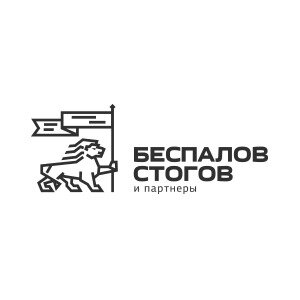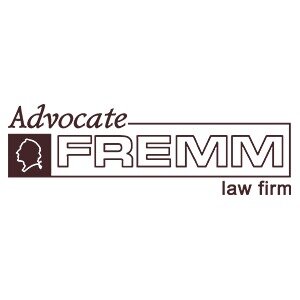Best Renewable & Alternative Energy Lawyers in St Petersburg
Share your needs with us, get contacted by law firms.
Free. Takes 2 min.
List of the best lawyers in St Petersburg, Russia
About Renewable & Alternative Energy Law in St Petersburg, Russia
Renewable and alternative energy law in St Petersburg, Russia covers the regulatory framework and legal considerations surrounding the generation, distribution, and consumption of energy from sustainable sources. These include wind, solar, hydropower, biomass, and geothermal energy. The local government has taken action to encourage the development and use of alternative energy, aligning with national objectives to increase energy efficiency and reduce dependence on fossil fuels. Legal considerations often address licensing, grid access, tariffs, incentives, and environmental impact assessments.
Why You May Need a Lawyer
Legal assistance is often crucial when navigating the complexities of renewable and alternative energy projects in St Petersburg. Some common situations where legal expertise is helpful include:
- Securing permits and licenses for energy installations
- Negotiating land use or purchase agreements
- Drafting and reviewing contracts for energy supply or joint ventures
- Understanding tariffs, subsidies, and available government incentives
- Ensuring compliance with environmental and safety regulations
- Managing disputes with authorities, contractors, or business partners
- Protecting intellectual property related to energy technology
- Addressing cross-border energy trading or foreign investment restrictions
Local Laws Overview
The legal landscape for renewable and alternative energy in St Petersburg is shaped by both federal and municipal regulations. The main federal law governing this sphere is the Federal Law on Energy Saving and Increasing Energy Efficiency, as well as the Federal Law on Renewable Energy Sources. Locally, St Petersburg implements these laws through city programs and building requirements supporting sustainable energy use. Key aspects include:
- Mandatory permits for construction and operation of energy facilities
- Requirements for grid connection and cooperation with local utility providers
- Application of incentive programs and subsidies for eligible projects
- Environmental impact assessment obligations for significant projects
- Comprehensive land use and zoning regulations, especially within city limits
- Monitoring and reporting duties for energy producers and users
Frequently Asked Questions
What types of renewable energy are regulated in St Petersburg?
The main regulated renewable sources are solar, wind, hydropower, geothermal, and biomass. Regulations may differ depending on the energy type and installation size.
Do I need a special permit to install solar panels on my property?
Yes, permits are required for most solar panel installations, especially for commercial use or multi-unit housing. Approval depends on technical specifications and building codes.
Are there government incentives for renewable energy in St Petersburg?
There are some subsidies and tax incentives, especially under federal programs, but local support varies. Eligibility depends on the type and scope of the project.
What are the environmental requirements for starting a renewable energy project?
Most projects must pass an environmental impact assessment. The requirements increase with project scale and location, particularly in protected or densely populated areas.
Can businesses generate and sell renewable energy to the public?
Businesses may generate and sell energy, but must comply with licensing rules and grid connection regulations. Selling to the grid usually involves agreements with local utility companies.
How is the connection to the electricity grid managed?
Grid connection requires separate agreements and adherence to technical standards as set by local and federal rules. Additional grid upgrades may be necessary for larger projects.
Is it possible for foreign investors to launch renewable energy projects in St Petersburg?
Yes, foreign investment is allowed but often subject to additional scrutiny, licensing, and approval processes, especially in strategic sectors or near sensitive locations.
What should be included in a contract for building a renewable energy facility?
Contracts should specify technical requirements, deadlines, penalties, payment terms, risk allocation, insurance obligations, and dispute resolution mechanisms.
Who regulates renewable energy activities in St Petersburg?
Oversight is shared between federal energy regulators, the St Petersburg city government, environmental authorities, and utility operators for grid-related matters.
What legal risks should be considered before starting a renewable energy project?
Key risks include changes in regulations, permitting challenges, environmental liabilities, grid access issues, tariff fluctuations, and potential disputes with stakeholders or the government.
Additional Resources
Several organizations and governmental bodies provide information and support for renewable and alternative energy initiatives in St Petersburg:
- Ministry of Energy of the Russian Federation - Sets national policy and regulation
- St Petersburg Committee for Energy and Engineering Support - Oversees citywide energy programs
- Russian Grid Company - Manages the power grid infrastructure
- Federal Service for Supervision of Natural Resources - Environmental assessments and approvals
- Russian Association of Renewable Energy - Industry advocacy and information
- Legal clinics and environmental non-profit organizations in St Petersburg
Next Steps
If you require legal advice regarding renewable or alternative energy in St Petersburg, start by gathering all relevant documents related to your property, business, or project. Identify the exact nature of your question - permits, contracts, disputes, or investments. Research and contact a local law firm or legal consultant with experience in energy law and, preferably, knowledge of both federal and St Petersburg-specific regulations. Arrange an initial consultation to discuss your situation and possible courses of action, including assessment of legal risks and options for compliance. Consider joining local or national industry associations for up-to-date guidance as regulations continue to evolve.
Lawzana helps you find the best lawyers and law firms in St Petersburg through a curated and pre-screened list of qualified legal professionals. Our platform offers rankings and detailed profiles of attorneys and law firms, allowing you to compare based on practice areas, including Renewable & Alternative Energy, experience, and client feedback.
Each profile includes a description of the firm's areas of practice, client reviews, team members and partners, year of establishment, spoken languages, office locations, contact information, social media presence, and any published articles or resources. Most firms on our platform speak English and are experienced in both local and international legal matters.
Get a quote from top-rated law firms in St Petersburg, Russia — quickly, securely, and without unnecessary hassle.
Disclaimer:
The information provided on this page is for general informational purposes only and does not constitute legal advice. While we strive to ensure the accuracy and relevance of the content, legal information may change over time, and interpretations of the law can vary. You should always consult with a qualified legal professional for advice specific to your situation.
We disclaim all liability for actions taken or not taken based on the content of this page. If you believe any information is incorrect or outdated, please contact us, and we will review and update it where appropriate.














